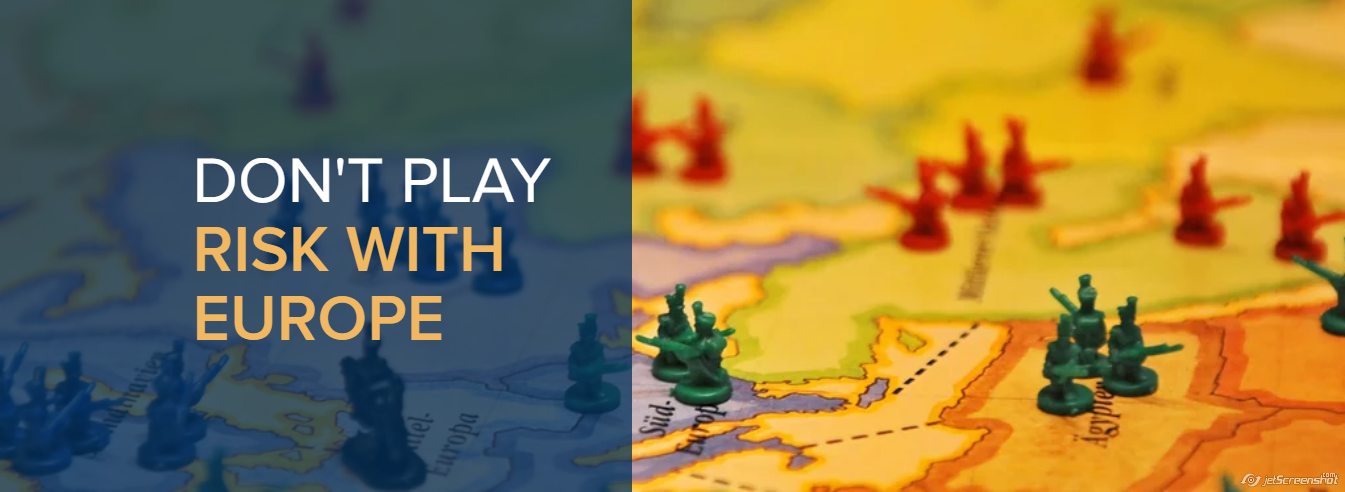
Edward Lucas explains why the West should not treat the “in-between” states as objects on a gameboard.
By Edward Lucas, for CEPA
My introduction to geopolitics came from the game of Risk. In our 1970s Cold War household, this board game, invented in 1957, had a particular sizzle. The board features an outsized Ukraine, stretching from the Arctic to central Asia, and territories called Irkutsk, Kamchatka, Siberia, Ural, and Yakutsk in the area then occupied by the Soviet Union. On long rainy afternoons, as my siblings and I hurled the dice at the board, I pondered the odds, not only of a winning throw, but on what then seemed the impossibly distant prospect of a collapse of the evil empire.
But moving armies around a board gradually palled. The great powers’ success rested on luck and skill, not ideas. Alliances were based on short-term tactics, rather than values. And all conflicts were zero-sum games. You could conquer the world, but not make it better.
The more interesting questions, I reckoned, were what did people want, why they wanted it, and who was stopping them from getting it. The answers to that lay in books, not board games—and, as soon as I was old enough, in travels behind what was then the Iron Curtain.
I suspect the authors of a new paper on European geopolitics published by the RAND think tank and edited by Samuel Charap, an Obama administration State Department official, would be excellent Risk players. They argue for a new approach to what they call “in-between” countries, such as Ukraine, which they depict as caught between currently unattainable European and Atlantic aspirations, and the Kremlin’s security interests.
To be fair, the authors – mostly Americans, Germans, and Russians – accept that the in-between countries are not all in the same category. Belarus and Armenia are more-or-less loyal Kremlin allies. Georgia and Ukraine are in a quite different category, and Azerbaijan is different in another way, as is Moldova. They also decry any talk of a “grand bargain” between East and West: their main argument is for small steps, confidence-building measures, and efforts by all sides not to make matters worse.
But their study has the same flaws as does Risk. For a start, it assumes moral equivalence between all parties. There is no difference between the red team and the blue team. That is fine in a board game. But in real life that assumption puts Russia, the successor and in large part unrepentant defender of the mass-murdering Soviet Union, on the same level the European Union, which is the world’s largest and most prosperous democratic entity, and NATO, a uniquely successful military alliance of democracies.
Secondly, it largely ignores the wishes of people in the countries directly concerned. Ukrainians died carrying blood-soaked European flags on the streets of Kyiv in 2014, because they wanted the same dignity, liberty, security, and justice that their fellow-Europeans enjoy. Too bad. The word “Maidan,” which epitomizes that glorious idealistic insurrection, appears only once, in a timeline which dismisses Ukraine’s foreign policy as a “chaotic and unsustainable” attempt to balance the West and Russia. This leaves no room for Ukrainians’ own views of, and struggle against, their corrupt, oligarchic, and often treasonous political rulers.
Any discussion of regional security has to start with the who-wants-what questions that perplexed me as a teenager. Ukrainians and others yearn to be part of the West, for entirely understandable reasons; the Kremlin wants to stop them for deplorably selfish, imperialist reasons.
Come to think of it, the Russian leadership’s ruthless, zero-sum thinking probably makes them good Risk players. Perhaps they should invite Mr. Charap and his co-authors round to the Kremlin for a game. But not, please, at the expense of real countries and real people.
By Edward Lucas, for CEPA
Europe’s Edge is an online journal covering crucial topics in the transatlantic policy debate. All opinions are those of the author and do not necessarily represent the position or views of the institutions they represent or the Center for European Policy Analysis.




